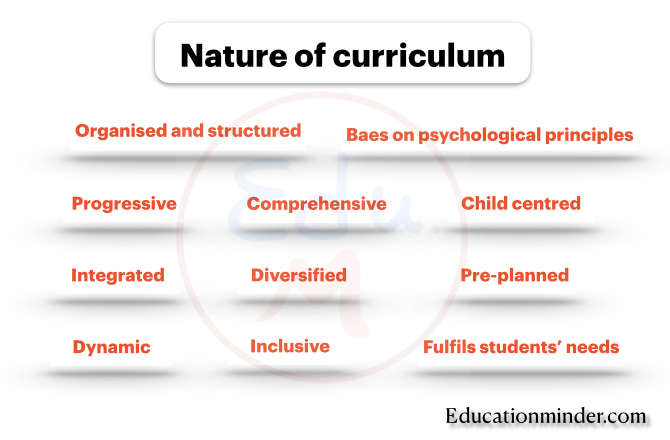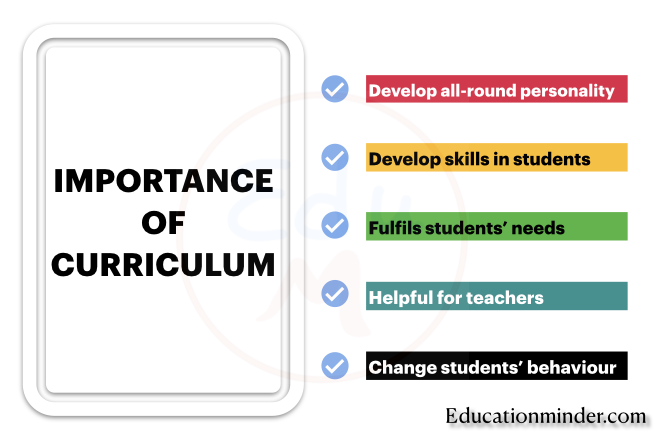Concept of Curriculum
Curriculum is a planned, structured and sequential set of courses, which includes the knowledge, skills and attitudes that students are expected to learn.
Wheeler defined curriculum as the planned experiences offered to the learner under the guidance of school.
According to National Curriculum Framework-2005, "The curriculum must enable children to find their voices, nurture their curiosity-to do things, to ask questions and to pursue investigations, sharing and integrating their experiences with school knowledge rather than their ability to reproduce textual knowledge.
Nature of Curriculum
Following points highlight the nature of curriculum:
1. It is organised and well structured.
2. It provides opportunities for students to grow and learn.
3. It is Progressive in nature.
4. It is integrated and comprehensive.
5. It is diversified.
6. It is dynamic in nature.
7. It is child centred.
8. It is inclusive in nature.
9. It makes the process of learning enjoyable.
10. It is tailored to the needs of students.
11. It provides cultural and disciplinary values.
12. It fulfils the demands of society.
13. It is based on psychological principles.
14. It reflects the philosophical view point.
15. It is a pre-planned activity.
16. It focuses on learning outcomes.
17. It promotes teaching strategies that reflects concepts of learning.
Meaning, Definition and Characteristics of Curriculum
Need and Importance of Curriculum
Curriculum is the backbone of education. It provides a framework for the teaching of subject matter. It includes Unit plans, lesson plans, assessment techniques, teaching strategies etc.
Therefore, It is an important part of an educational program. Following points will help us to understand the need and importance of curriculum:
1. Develop all-round personality
One of the main objectives of education is all round development of students. Curriculum plays an important role in attaining this objective.
It focuses not only on the cognitive development of students but also on physical, social, and emotional development.
2. Helps in changing the behaviour of students
Curriculum means all the experiences ( instructional strategies, activities, teaching aids etc) which students get in school. Curriculum provides these experiences through both internal and external activities.
The main purpose of all these activities is to change the behaviour of students. It is important to modify the behaviour of students- to shape their personality, to establish inter-relationships with others.
3. Helpful for teachers
Curriculum is helpful for teachers in the following ways:
#a. As we know, lesson planning is an important part of teaching. Therefore, curriculum helps teachers in preparing their lessons plan. It helps teachers find what to teach and how to teach.
#b. It encourages teachers to try out new methods of assessment.
#c. It helps teachers in the selection and organisation of learning experiences.
#d. With the help of curriculum, teachers can easily make a connection between students’ prior knowledge and new knowledge.
4. Develop skills in students
A well-designed curriculum helps students in developing the critical thinking and problem-solving skills which they need to succeed in their careers.
Curriculum develops these skills by promoting activity-based learning, inquiry-based learning and project-based learning.
5. Curriculum fulfils students’ needs by
- Providing various opportunities.
- Providing quality content according to their interests and level.
- Supporting students’ existing knowledge.
- Providing flexibility and more variety in the content.
FAQ’s
What does area of curriculum includes?
Area of curriculum includes internal activities of school and external activities of school.
What is the basic determining factor in the organisation of school?
The basic determining factor in the organisation of school is the curriculum















0 Comments